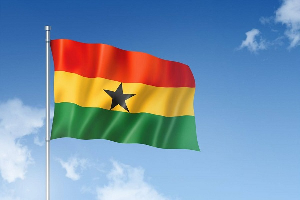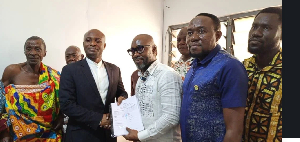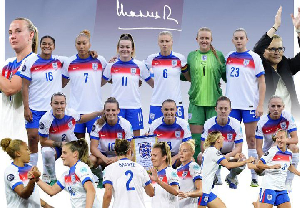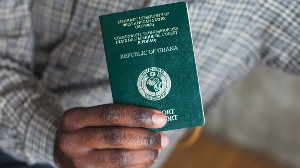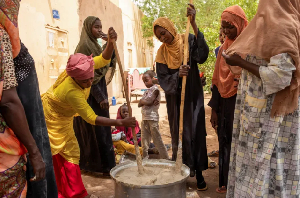Ghana is rounding up its ninth general elections since the country’s return to democratic governance barely three decades ago. The opposition has swept the stakes, clinching the presidency and parliament by margins as intriguing as the historically low voter turnout. At least by Ghana’s own lofty standards, the electioneering should have been more peaceful.
In Ghana's fledgling democracy, elections are the predominant medium for mass political participation, which has cemented them as invaluable barometers of both popular political sentiment and the broad health of the country’s democratic regime. The December 7 polls have been quite generous with insights on the latter.
Total voter turnout is projected below 65%, which translates into 1 abstention in every 3 registered voters. This rate of electoral boycott in Ghana is the highest in recent decades. This kind of voter apathy, not seen even during the conduct of polls amid the pandemic four years ago, is amplified in its significance by both the absence of the sophisticated and widespread voter intimidation campaigns strategically deployed by hooligans in some sham democracies elsewhere in the Third World and its defiance of the expectation that the recent economic stresses of Ghana (which is currently under an IMF programme) would have sparked a stampede of voters to the polls.
The December 7 polls were also tainted by occasionally startling episodes of violence, especially during voting and results collation in some areas. The resulting chaos has already thrown some local parliamentary races into courtroom battles. Such electoral violence needlessly besmirches Ghana’s democratic image.
The familiar trend of single-party monopoly of the executive and legislative arms of government seen in Ghana after every general election is also set to continue, after the decisive recapture of those bodies by the opposition. With the unimpressive institutional checks and balances that have made high-level graft, legislative diffidence, and executive imperialism routine political frustrations in Ghana, the implications of this turn of events could not be clearer to political watchdogs and reformists alike.
In the grand picture, the script in Ghana has not changed since the dawn of the 4th Republic in 1992. Political power continues to oscillate between rival parties on the orders of disillusioned voters smitten by the thorny pangs of Ghana’s recurring and increasingly ruthless economic downturns. Only this time, with an exploding population of young people and terminally wobbly macro-economic fundamentals that impugn the credibility of elite assurances of optimism in the country’s development fortunes, the historic voter apathy may serve as a timely cue to the faltering agility of such democratic rituals as competitive elections, as reliable opium for soaring mass discontent and despondency.
This state of affairs indisputably necessitates robust introspection for relevant improvements for the fortification of any democratic regime. Ghana must seize the opportunity for some critical soul-searching and ground-breaking political and economic governance reforms. Call it a reset or an upgrade! (Ghanaian partisans should get the joke!)
The most promising starting point of such reforms is Ghana’s 1992 constitution, which underwrites the current governance architecture and political economy that have arguably stifled sustained and equitable prosperity in the country and spawned the political distress and disorders on display.
Ghana’s constitution is infamously hostile to effective local governance. This governance architecture lapse impedes the efficient delivery of basic public services, domestic tax mobilisation, rural economic development and access to opportunity, and effective political accountability. The constitution should urgently see an amendment to ensure the demarcation of the current local governance settings into economically viable structures, alongside the popular (and desirably party-involved) election of mayors to head such outfits. These restructured local governance units must also be fiscally empowered through smart public revenue-sharing arrangements with the central government.
These changes would accelerate the expansion of economic development, job creation, and quality public service delivery – often top concerns of voters – across the country. The resultant boost to domestic tax mobilisation should relieve the strains of public debt obligations and help curb the lust for commercial foreign loans. Electing mayors would ensure political incentives are established for attentiveness and responsiveness to the vital development needs of local voters.
As an investment-hungry economy, Ghana must comprehensively burnish its rule of law credentials to enhance its appeal to both foreign capital and technology. This should take place through the robust enhancement of the global competitiveness and astuteness of Ghana’s commercial jurisprudence. The Ghanaian judiciary must be further positioned to punctually and decisively fight political sleaze and corruption, which account for the tragic proportions of financial leakages reported in the country, despite the persistent national revenue challenges.
A bold restructuring of the Supreme Court through constitutional amendments to engender international best practices in judicial efficiency, neutrality, and accountability could precipitate system-wide improvements that discourage domestic corruption and ultimately enhance Ghana’s attractiveness to foreign investment and know-how.
It is also imperative for the exercise of legislative authority in Ghana to diffuse beyond the executive, which largely monopolises it. As a cosmopolitan state in a globalised world, Ghana comprises diverse policy constituencies within and beyond its borders and lacks any immunity against the effects of international policy discourses. The country must subsequently embrace pluralism in legislative development to boost the meaningful participation of citizens in governance and policymaking, especially through legislative initiatives.
Constitutional amendments should clear any fetters on the direct introduction of legislation by legitimate actors besides the executive, including ordinary citizens. This should curb the marginalisation of non-partisans and even constructively critical partisans, who are outside public office, in the everyday governance of the country - and eventually enhance the quality of governance through both the sheer diversity of active legislative and policy actors and the dismantling of politically-expedient but generally harmful legislative and policy minefields.
“How political parties fail is how democracies fail.” This is a slightly paraphrased comment I have discovered after the polls in Ghana. It is a lovely epigram that should engender as much interest in political parties in Ghana as the country’s democracy itself. As the predominant sources of the personnel and policies for the management of the country, political parties in Ghana deserve no less scrutiny and quality improvements than the democracy they operate within.
Necessary legal reforms should ensure their internal democracy, financial transparency, and policy-making competencies are radically improved for the growth of Ghana’s democracy. There could be hardly more rewarding political investments.
With the growing fastidiousness of the Ghanaian voter, escalating restiveness of the millions of disgruntled youth, the menacing macro-economic hazards, and the waning charm (or credibility?) of the ruling elite, Ghana’s path to redemption and hope may only emerge through these pressing reforms.
Watch as Parliament pays tribute to late Ghanaian boxing legend Clement Ike Quartey Snr
Opinions of Thursday, 19 December 2024
Columnist: Michael Adu Gyekye

